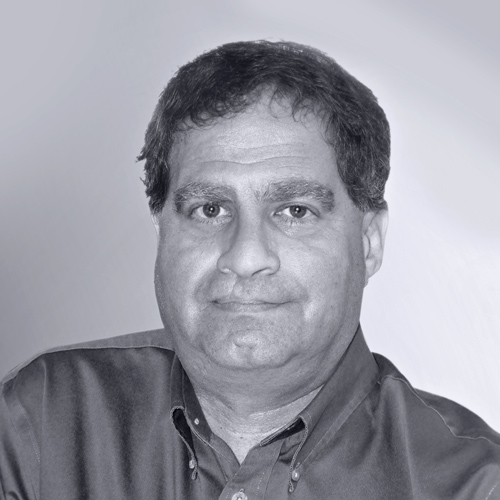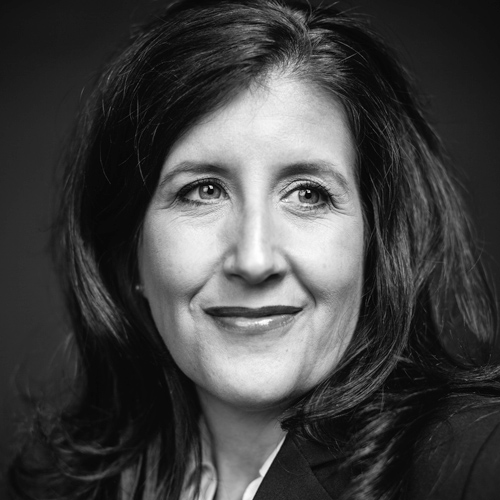Heather French had experience in litigation; she had dealt with busy deadlines and multiple cases looming before. But nothing could have prepared her for the crisis that American Capital faced in 2008.
The problem started with heparin, a widely used prescription blood thinner. In 2008, after decades of safe heparin supply, it was discovered that for a short period of time, a counterfeit ingredient had been added to the crude heparin sourced from China and supplied to about a dozen companies worldwide, including Scientific Protein Laboratories (SPL), a global manufacturer of active pharmaceutical ingredients and, in 2008, a portfolio company of American Capital. The tainted product was sold to companies, including Baxter Healthcare, which distributed heparin to patients in the United States.
More than a thousand lawsuits were filed, the Food and Drug Administration and US Congress were investigating, national media was circling, and as deputy general counsel of one of the largest private equity firms in the world, French had a massive job on her hands. “This is not the type of event that happens in most company’s lives,” says French. “These things are very rare, and I’m not sure much fully prepares you for a situation like this that is so far-reaching and has so many different entities involved. It is even more magnified when it is related to the health and safety of people.”
“It quickly became clear that we could figure out a creative litigation strategy or face bankruptcy for our portfolio company.”
The most urgent task was to find out what was causing the spike in adverse event reports and make sure a recall happened quickly and effectively. Since American Capital owned the majority of the equity in Scientific Protein Laboratories, American Capital was also named in lawsuit after lawsuit.
“Private equity companies don’t typically expect to be caught in the crosshairs of major product liability crises, but as the majority equity holder of this particular portfolio company, that is exactly what happened,” says French.
The stakes were extremely high for everyone involved. Once American had a handle on the recall and ensuring safety going forward, the private equity firm had to face the fact that there were hundreds of millions of dollars at stake. “Were we going to lose our entire investment in the portfolio company? Were we going to face our own exposure to liability?” These were the tough questions French says American had to ask.
French was in charge of litigation for American Capital and spearheading SPL’s litigation efforts because it did not have its own in-house counsel. She had two clear choices: “It quickly became clear that we could figure out a creative litigation strategy or face bankruptcy for Scientific Protein Laboratories,” French says.
The Charter Oak Fire Insurance Company et al v. American Capital, Ltd. et al
When American Capital turned to its general liability insurer, Travelers, to fund the defense of the heparin litigation as promised by the terms of the policies Travelers sold to American Capital, Travelers responded by suing American Capital. Travelers sought to nullify its policies and said it should not have to pay because it did not understand that American Capital held a majority interest in various portfolio companies, including Scientific Protein Laboratories, so the policies should essentially be rewritten to bar coverage. Rather than simply contesting Travelers’ denial, French and her insurance counsel at Reed Smith LLP went on the offensive, seeking leave to file a counterclaim for fraud based on Travelers’ admission that it never intended to perform the promises it made in the policies. In September 2014, a federal judge in Maryland allowed the counterclaim to go forward, arguably a first in more than a century in Maryland, and a move that could give teeth to a body of law that is meant to hold insurance companies accountable, but previously had little enforcement.
French and American Capital decided to team up with Baxter and its law firm, Kirkland & Ellis LLP. French worked with Kirkland, as well as litigation and regulatory lawyers from Arnold & Porter LLP, every step of the way. She helped file hundreds of motions, got nearly 100 successful summary judgments, went through extensive discovery, and prepared and attended every deposition of every officer at Scientific Protein Laboratories and American Capital. She analyzed all available loss-reduction measures, including insurance, and worked closely with John Schryber, coverage counsel at Reed Smith, to develop a strategy to ensure that American Capital’s general liability insurer, Travelers Insurance of America, would fund the massive heparin litigation effort.
A ruling in Ohio federal court came American’s way. The multidistrict litigation judge decided from a causation standpoint which cases would be viable and greatly whittled down the number of cases Scientific Protein Laboratories and Baxter were facing.
“It was completely insane,” French said of the pace of her work during that time. “The crisis broke in 2008 and continued at a breakneck pace for the next several years.”
French had cut her teeth at Akin Gump working cases in the US District Court for the Eastern District of Virginia, also known as the “rocket docket”—a place where cases move quickly and deadlines are hard and fast. That experience would be integral to the volume and speed of work French would face over the course of the litigation. “I was used to really tight and challenging deadlines,” French says. “When you are in a crisis like this, everything has to be done yesterday. You don’t have time to spend extensively evaluating things. You have to react quickly.”
There were daily phone calls to senior management and members of the board, and constant communication to keep all the lawyers on the same page. “At this point, I really came to appreciate working for an amazing GC and executive team,” says French. “Without their trust and support, it would have been an impossible situation.”
At the same time, the financial crisis was erupting, and American Capital was dealing with the fallout of the recession and a number of other litigation matters because of the economic downturn.
On top of all that, French had just given birth to her first child, a daughter, four months earlier when she had to travel from her home in Washington, DC, to Chicago to try the first heparin case.
Her saving grace was that many of the lawyers from Kirkland and Arnold & Porter, including the lead lawyers, Leslie Smith and Ellen Reisman, were also mothers.
“They understood that I left a daughter at home,” she said. “It was really helpful to me that I was going to trial with a group of people who were similarly situated and had all been there before. It was really tough to be in three places at once. It was a master juggling act to keep everything going.”
A two-week trial concluded in June 2011 with a Cook County judge’s order that Baxter and Scientific Protein Laboratories pay $625,000 to the estate of a man who died after using heparin.
It wasn’t a win, but it was a good sign.
“Because of the relative size of the judgment, it set things up to resolve many of the cases,” French said.
In the next case, the heparin litigation defendants got a jury verdict in their favor, and the rest of the cases were largely dismissed or settled.
For a situation with so much at stake, the tides turned for American Capital, which sold Scientific Protein Laboratories in 2014 for $210 million.
“It was a really good result for a company that faced such an uncertain future a few years before,” French says.
Today there are four heparin cases remaining of the original 1,000-plus, in addition to the insurance case pending against Travelers. While most of the crisis has passed, except for a few outstanding cases, French says the lessons from the experience were invaluable.
“You can’t see it at the time, but the biggest crises are often the best learning experiences. I now look at things completely differently,” she says, considering matters on different levels at once now—the implications with customers, the press, regulatory, insurance, and litigation.
The heparin cases showed French and American Capital how important it is to make the members of the legal team integral members of the business team as well. “It’s really an opportunity for lawyers to be more involved in the business and help reach the business goals through the use of good legal advice.”


